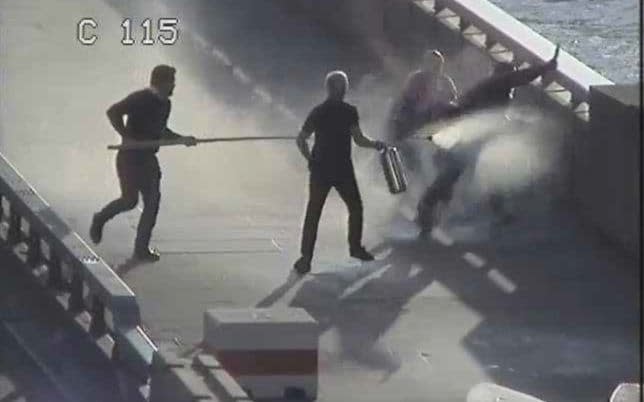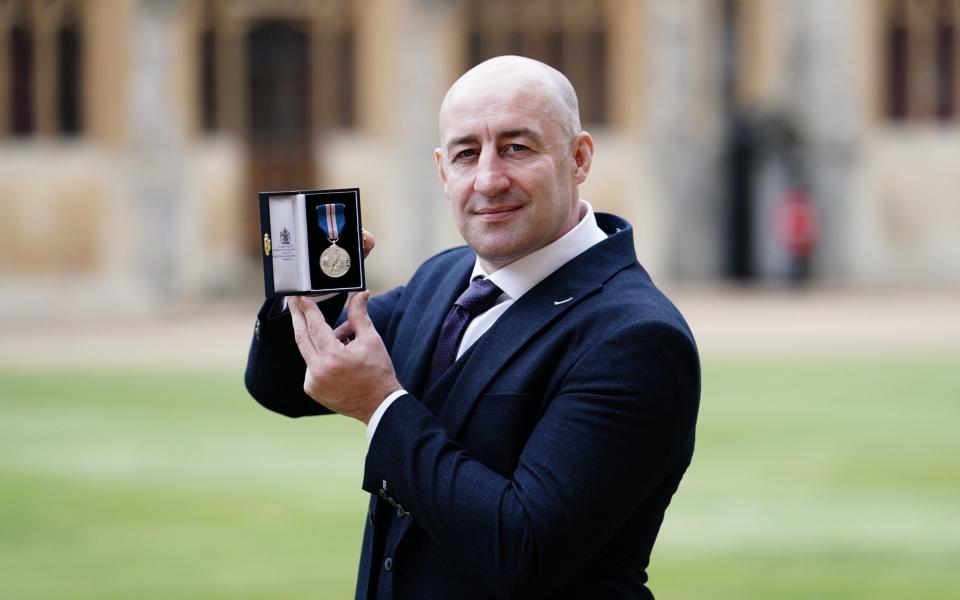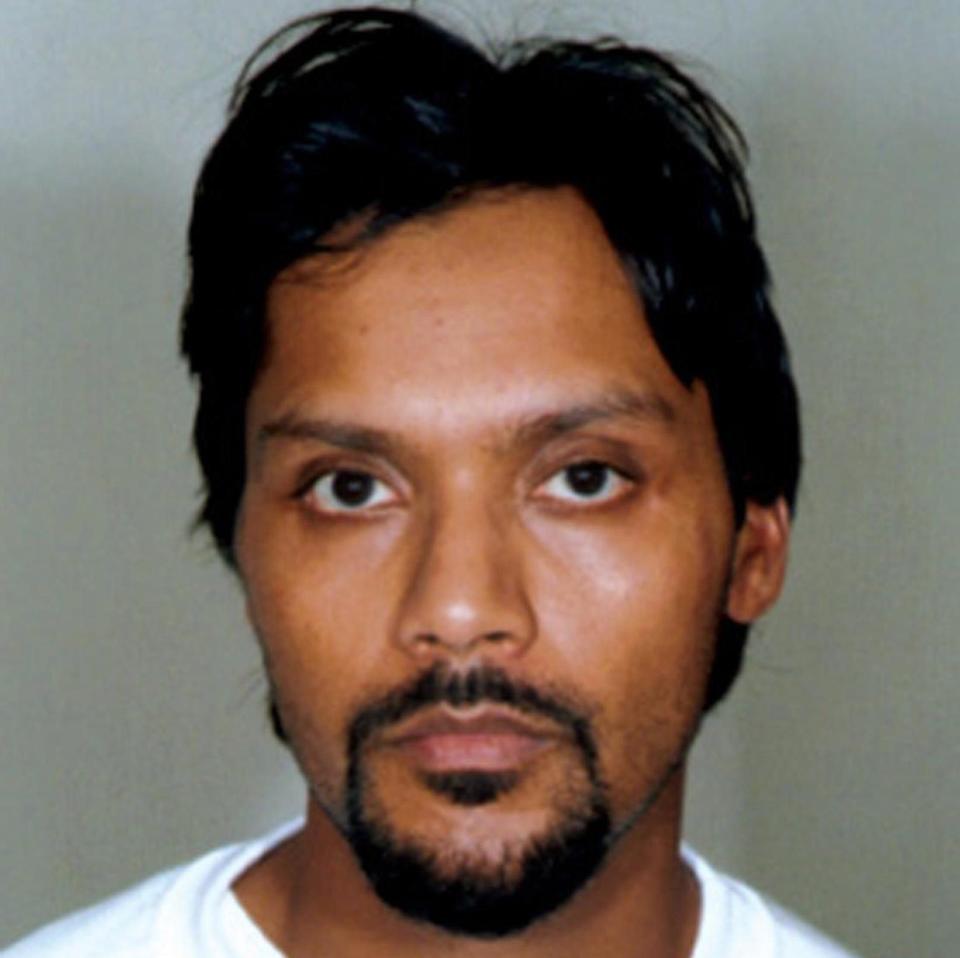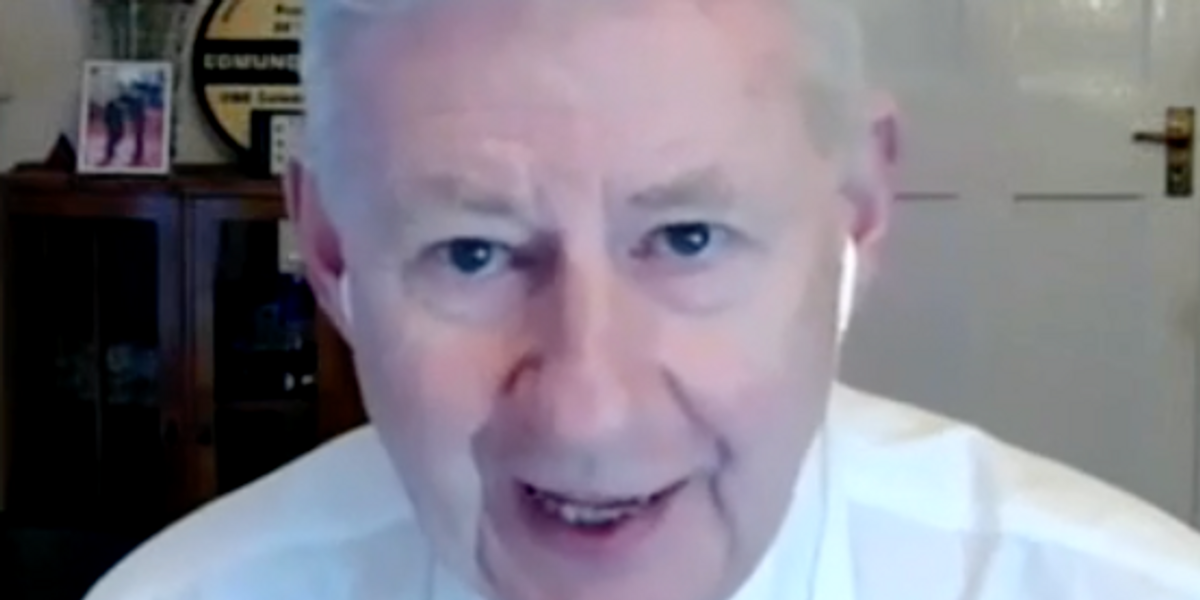Muslim gangs have orchestrated a shift in the power balance in prisons through violence and religious conversions, according to the convicted murderer who became a hero of the 2019 London Bridge terror attack.
Steve Gallant was on day release from prison when he grappled terrorist Usman Khan, who had stabbed two young people to death, to the ground before the violent extremist was shot dead by police. His heroism won him the Queen’s Gallantry Medal.
Mr Gallant, who was freed from prison after being given a 10-month reduction in his sentence, will this month deliver a lecture giving his ringside view of the rise of Islamist extremism in category A and B prisons where he served his sentence for the murder of a former firefighter in Hull.
He was jailed for life in 2005 and sent to Frankland high-security prison in Durham where up to 20 terrorists were transferred in the following years, sparking a tit-for-tat prison war between white and Muslim gangs.




The flashpoint came in July 2007 with an attack on Dhiren Barot, an Al-Qaeda terrorist sentenced to life for plotting to blow up the New York stock exchange and other financial institutions, and seen by his fellow Muslims as an “emir” (leader) in rank and esteem.
Barot, then 35, suffered agonising burns when a white inmate poured a pan of boiling cooking oil over his head.
“It gave fuel to those who wanted to push an agenda that Frankland was developing into somewhere dark and dangerous not only for extremists but for all Muslims, a place where they would be targeted with extreme acts of violence for simply adhering to their faith or for the colour of their skin,” Mr Gallant told The Telegraph.
In retaliation for the attack on Barot, Omar Khyam, another terrorist serving 20 years for planning a fertiliser bomb attack in London, doused Malcolm Cruddas, a white armed robber, with hot oil, even though he was not connected to the previous assault.


“There was now a battle for wing control. Those who had stoked the fire had created deadly enemies,” said Mr Gallant.
“It didn’t matter to the convicted terrorists, as they committed themselves to a violent cause, and some were only alive because their bombs had failed to detonate while strapped to them.
“Nor did it matter to the hardened gang members and individuals (on both sides) who made a living out of reputational violence.”
Against a backdrop of a growing number of convicted and suspected Islamist terrorists being sent to jail, Mr Gallant said the “balance of power” shifted to Muslim gangs. “As the Islamists started to grow in number and in strength, the balance of power changed,” he said.
“People who probably wouldn’t have ever even thought about converting began to do so because they thought their chances were better off on their side.
‘A different set of values’
“It was a different set of values, which I think a lot of prisoners who had come in off the street who didn’t know what values were, suddenly felt a sense of purpose. For example, there was a guy who had been a drug taker for many years, who would have been in debt and slapped around for it, who suddenly joined this group and stopped taking drugs.”
Ministry of Justice (MoJ) data shows there were 15,594 Muslim prisoners in England and Wales in September last year, accounting for 18 per cent of all inmates despite comprising only 6.5 per cent of the population.
Of these, 3,096 – 19.9 per cent – were white, according to the MoJ figures. This is nearly three times the rate in the general Muslim population, where 7.8 per cent are recorded as white.
Mr Gallant claimed the power shift filtered down to Category B prisons because of the numbers. However, he believed there was now less inter-gang violence because “the major power struggle is pretty much done”. “The power shift has happened. Prisoners have accepted that, so on that level, it’s calm,” he added.
Prison chiefs ‘feared being called racist’
Mr Gallant said he believed prison governors and officers had taken action when violence broke out but had failed to take sufficient preventative or pre-emptive action partly because of fears of being accused of racism.
It is a view shared by Jonathan Hall KC, the independent reviewer of terrorist legislation, who will attend Mr Gallant’s lecture to the Henry Jackson Society, a foreign policy and national security think tank.
Mr Hall’s report on extremism in jails found Muslim terrorists had been able to seize control of wings and set up sharia courts in prisons as staff were so concerned about being accused of racism.
Mr Gallant has backed moves by the Ministry of Justice to increase the use of segregation units for the most dangerous offenders, boost security and intelligence gathering and improve offender behaviour programmes.
A prison service spokesman said: “Staff act swiftly to clamp down on intimidating or threatening behaviour regardless of cultural or religious sensitivities and our £100m investment into tough security measures is helping stop the contraband which fuels violence and gangs behind bars.













